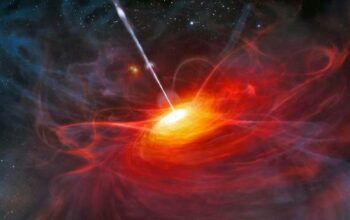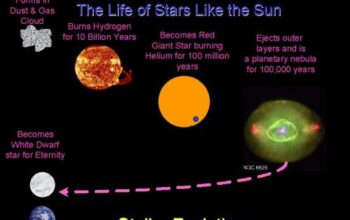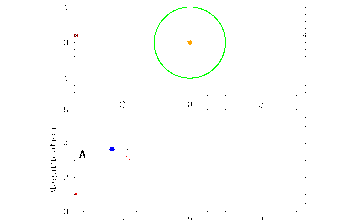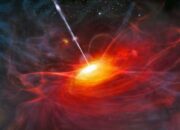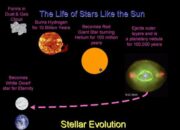Cosmology, the scientific study of the universe’s origin, evolution, and ultimate fate, stands at the precipice of remarkable advancements. Despite the profound obscurity that invades our cosmos—characterized by dark matter, dark energy, and the enigmatic nature of spacetime—there exists a burgeoning optimism fueled by recent discoveries and technological innovations. Paradoxically, it is within this seemingly dark universe that the bright future of cosmology illuminates our understanding of existence.
To appreciate the full spectrum of cosmology’s potential, one must first recognize the extraordinary paradox at play. While the cosmos contains roughly 27% dark matter, an ill-defined substance that exerts a gravitational influence without emitting light, and an astonishing 68% dark energy, a repulsive force driving the universe’s accelerated expansion, the remaining 5%—the luminous matter we perceive—appears achingly trivial. This dissonance between seen and unseen beckons the inquisitive to delve deeper into the celestial abyss, to seek enlightenment amidst darkness.
The evolution of cosmological theories—from ancient mythologies to the empirical foundations of modern physics—mirrors humanity’s insatiable quest for knowledge. Enlightenment-era physicists, like Isaac Newton and Albert Einstein, brilliantly expounded on the laws governing celestial mechanics. Their work, however, was merely the prelude to a more comprehensive narrative. The advent of quantum mechanics and relativity catalyzed a paradigm shift, compelling scholars to reassess the nature of reality itself and igniting a myriad of inquiries into the cosmos’s hidden dimensions.
Recent years have heralded the advent of innovative methodologies to unveil the universe’s concealed secrets. The utilization of advanced telescopes, both terrestrial and extraterrestrial, has vastly expanded our observational capabilities. Instruments such as the James Webb Space Telescope are poised to revolutionize our cosmic perspective. With its unprecedented power to detect the faintest signals from the early universe, Webb transcends its predecessors, offering a glimpse into epochs long obscured by the veil of time.
Theoretical advancements also permeate the domain of cosmology. Notably, the interplay between quantum mechanics and general relativity remains an exhilarating frontier, with theories such as string theory and loop quantum gravity presenting tantalizing possibilities. These frameworks aspire to reconcile the classical and quantum realms, potentially elucidating the enigmas surrounding black holes and the very fabric of spacetime itself. As ideas flourish, cosmology evolves into a robust field where theoreticians and observational astronomers converge to elaborate on the narrative of the cosmos.
Moreover, the arrival of multimessenger astronomy marks a watershed moment in our understanding of the universe. By integrating diverse observational data—ranging from electromagnetic waves to gravitational waves and neutrinos—scientists can glean a more comprehensive picture of cosmic events. The detection of gravitational waves from colliding black holes in 2015 heralded a new chapter, revealing the dynamic and tumultuous nature of spacetime. This innovative approach offers the potential to probe phenomena previously thought unreachable, such as the nature of dark energy and the mechanisms behind the Big Bang.
As humanity delves further into the depths of cosmological inquiry, ethical considerations emerge regarding the implications of newfound knowledge. The awe-inspiring power of scientific discovery must be tempered by a profound sense of responsibility. Questions surrounding the potential for astrobiological life and the ethical treatment of extraterrestrial environments are increasingly relevant. With the prospect of habitable exoplanets and the intricate dance of celestial bodies, the moral dimensions of our explorative endeavors must be at the forefront of cosmological discourse.
Another pertinent theme is the philosophical implications of our cosmic discoveries. Cosmology challenges the anthropocentric perception of existence, provoking questions that extend beyond the empirical. Are we mere observers within an incomprehensible vastness, or do we hold intrinsic significance within the cosmological tapestry? Each revelation regarding the nature of our universe invites profound contemplation about our role in the grand narrative of existence. As cosmologists strive to untangle the intricate threads of the universe, they inadvertently weave a narrative about humanity’s place within that tapestry.
The unique appeal of cosmology lies not only in its empirical rigor but also in its narrative allure. It beckons both the scientist and the layperson, fostering an appreciation for the intertwined fates of the cosmos and human inquiry. As new discoveries unfold, they engender a sense of collective wonder and curiosity, reminding us of the essential human drive to explore and understand our surroundings.
In summary, the future of cosmology is resplendent with promise, characterized by groundbreaking discoveries, innovative methodologies, and ethical considerations that redefine our relationship with the universe. As we venture further into the cosmic ocean, navigating through the shadows of dark matter and dark energy, we uncover the luminous possibilities that await. The journey through this enigmatic cosmos may be fraught with uncertainty, yet it is precisely this uncertainty that fuels our quest for knowledge, illuminating our understanding of existence. In a universe dominated by obscurity, cosmology offers a beacon of hope—an enduring pursuit driven by curiosity and the inexorable desire to comprehend the unfathomable depths of reality.

